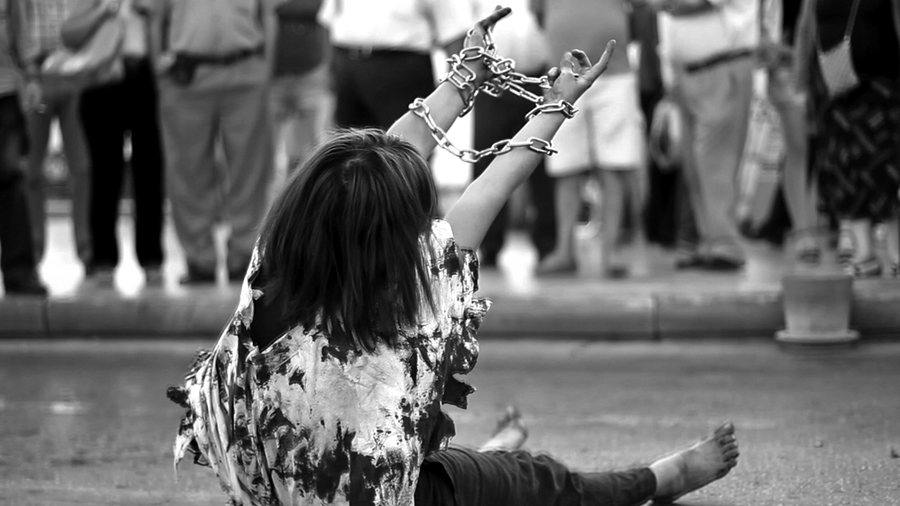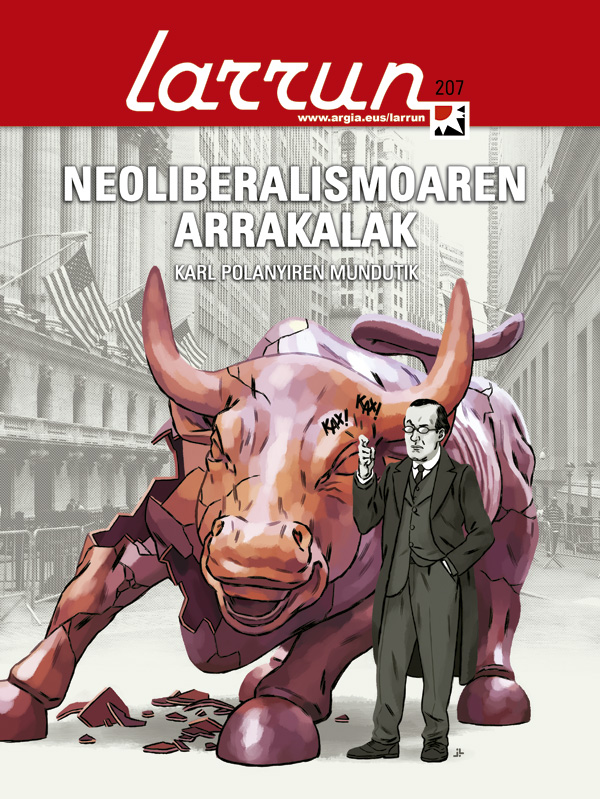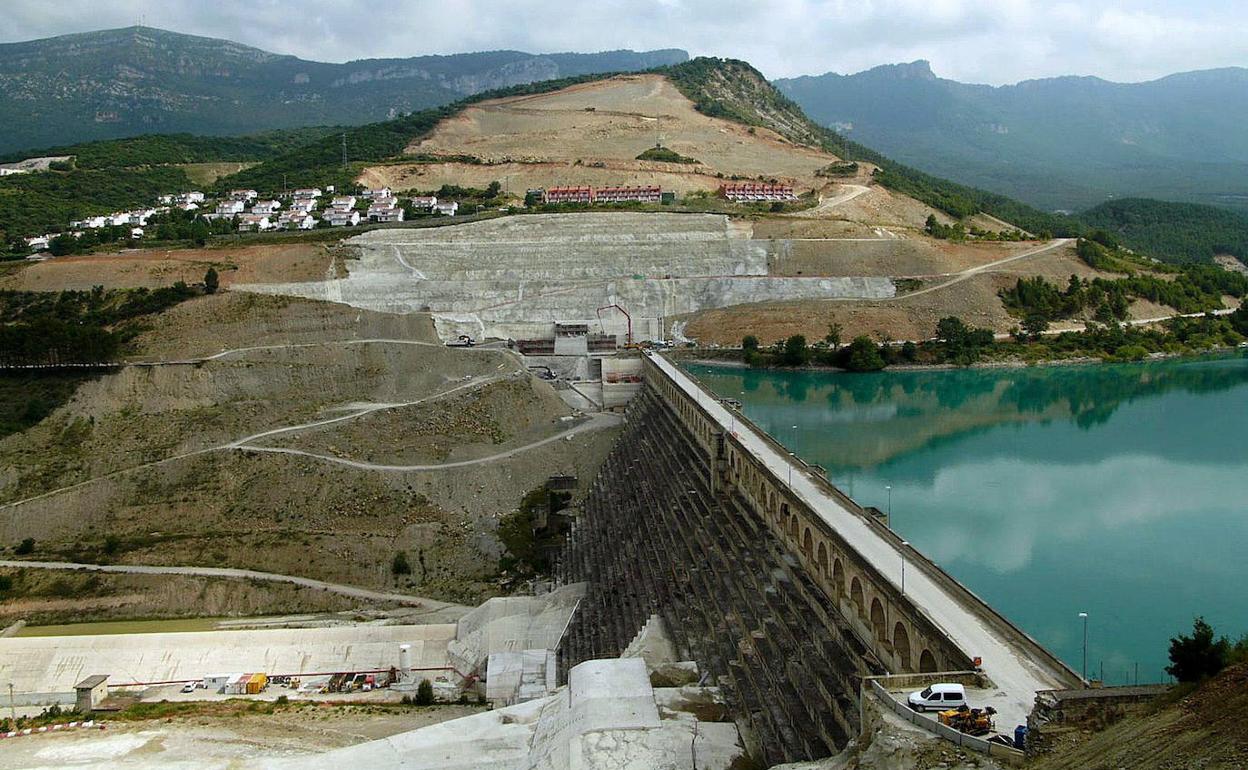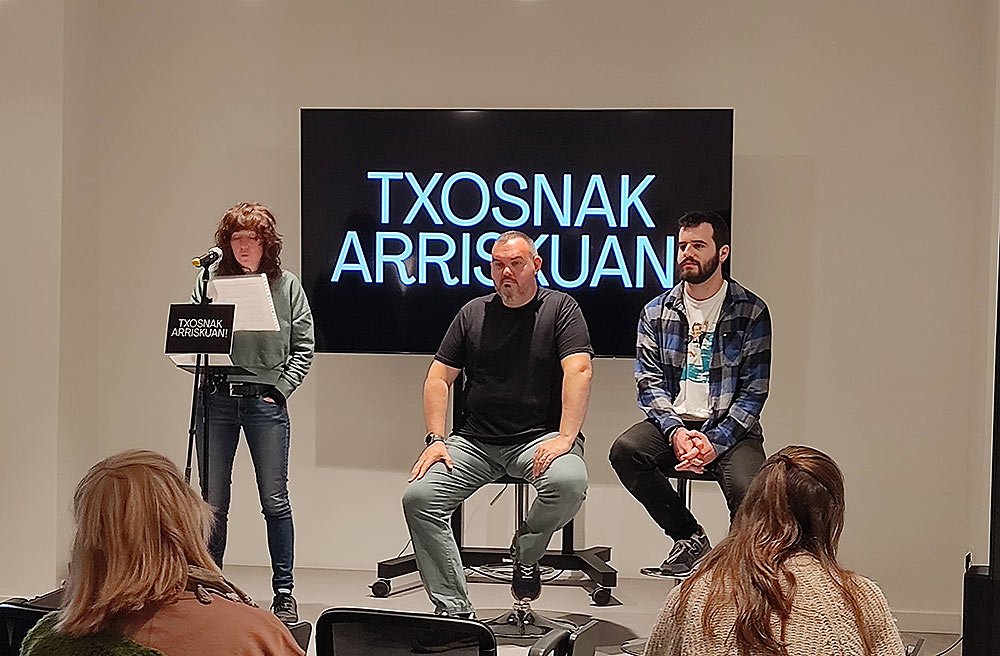What if Mesopotamia wasn't the cradle of capitalism?
- It has been considered that civilizations of Antiquity were the germ of the present financial universe; places where merchants and agora were born from the instinct of man. Karl Polanyi dismantles all of this with his research, discovering a world based on reciprocity and redistribution. The primitivism of returning to an ideal past that was not theirs, with the empirical analysis, wanted to find the keys to overcome the disaster caused by capitalism. From the book The Limits of the Market (Captain Swing, 2014) you will find below a free summary of several articles written by the anthropologist.

In 1901, French archaeologists discovered in the city of Susa, near Tigris, in Southeast Iran today, a basalt column with very valuable information: it makes 81 grandmothers elaborated with the laws in force in Mesopotamia. The Code of Hammurabi, which at the time was given its name since he was king of Babylon, allowed the writing to be re-read in the clay tablets that had been found until then. It is said that in Babylon we found the cradle of our world, of business.
Before the eyes appeared the true origin of a trade with a capitalist mentality: a civilization that venerated the king, the god and the benefits to the same extent. The law on demand and supply underpinned monetary customs, prices, transactions or accounts of debts and profits. A stone London city in an oasis. What happens is that this whole structure falls from the top down if there's no market. And that was what Polanyi was going, that in Babylon there was no market, at least as we understand it today.
When Herodotus visited Babylon 2,500 years ago, he realized that the Persians didn't go to the markets. Numerous later archaeological studies and excavations have shown that in Babylon and the Middle East there was no free space to be used as a market, and that words translated supposedly as a “market” of cuneiform writing did not mean any of that.
The business of Assyrians without risk
In the disappearing city of Kanish in present-day Turkey, the Assyrians set up a shopping centre to supply copper to the city. That was where the negotiators of the karum rank acted. The profits they obtained from the sale, left the money on loan or invested, and as in the most modern companies, there were shares and profits were distributed. From Kanish fabrics and other products were exported, the most important under a quota, and prices and interest rates fluctuated as stock indices.
This is in line with the market system. However, the experts who have investigated this case knew that something was wrong: in the old written tablets, the benefits were rarely mentioned and the losses never. Little attention was also paid to prices and traders should not leave the bond for treatment.
In fact, karums weren't merchants doing selling business, but rather a kind of savage officials. The difference is clear: unlike free trade, “concerted” trade does not pose a risk, either in the face of falling prices, or in the face of the difficulty of paying debts. Transactions were not private, they were mere provisions of the public authorities, and prices were not imposed by the markets, so profits did not come from their ups and downs, but from the use of products. This trade without market or speculation was a shocking activity, but it was only a risk-free business.
“Silent trade” in commercial ports
Commercial ports have existed at all times and in all geographies. When we see metal containers next to each other in the ports of Rotterdam or Bilbao, we might think that it is free traffic rooted in competition. But before modern times, security guarantees were needed to trade abroad. Commercial ports were a neutral instrument, from one country to another, where we could act without threats. Usually, they had low walls, open to the sea, to the river or to the plain, and more than price rivalry, they overlapped the rules of administration.
In these commercial ports, “silent trade” was often practised. When the Carthaginians began the conquest of the North African coast in the 5th century BC. C., they did it in the silent exchange of their tribes. As a precaution, both of them headed to the same site near the beach. There they left furniture and gold, and the operation was repeated several times until everyone agreed. Then, everyone took their way without physical or physical contact with the other. This system, which appeared to be a gift exchange, did not cause disturbances in its peoples, since it was not considered a commercial exchange.
The Basque whalers and the Amerindians around Ternua were not mute when they saw it, the Pigdin franca language emerged from their relationship. We know that in the sixteenth century the Basques and their peoples created a commercial network in North America – axes have also been found extracted from our ferries hundreds of kilometres from the sea – but to what extent was it not a system of exchange like the one we have just mentioned? If not, how do we understand the friendship of those Basques with the devils while the European colonizers slaughtered all the peoples of America?
Mesoamerica before the conquest was full of commercial ports. In Yucatan Terms Lake, for example, the Mayans and the Aztecs had a strong trade, and a tacit or tacit law said that that place could not be dominated by anyone. There were the warehouses and the premises for handling goods, a port without market, a multiple storage complex organized before a long trip. The Spanish conquerors destroyed all these ports and disappeared.
Ancient Babylon could be a commercial port of this kind, since, according to the latest investigations, there was no market in the capital of the Mesopotamian empire. So the question is clear: How, where and when did markets emerge? That competitive system that puts profits and losses at the whims of prices? Perhaps the history of the market could take a millennium and reach various degrees in the west, from Babylon to Greece.
Greek agora: Democracy Fair
In early 2015, filmmaker Yorgos Avgeropoulos produced, with the help of the Arab chain Al Jazeera, a successful documentary that crude the shipwreck of recent years in Greece: Agora. From democracy to the market. The film shows the impact of the crisis in the Hellenic country on the population and democratic institutions: “In the film there is a surreal scene, a parody within Parliament,” says the author in response to the French newspaper Liberation. They pass a law when the Assembly is practically empty and the speaker tries to convince the fantasies of parliamentarians.” According to Avgeropoulos, public democracy was extinguished when Greek public television took a black color.
In the territory that brought democracy to our civilization that we call the West, the agora was a public square of citizens for the assemblies. In the memory of modern Greece, however, it has been mixed with the market of purchase and sale. This anachronism is very noticeable in the case of classical Athens, where trade in products in large groups was banned, business with the land was publicly advertised and cash businesses closed. In Agora they dominated the decisions of the political sphere, and their creation had a great influence on social changes: if the farmer did not pay, he no longer feared that the creditors would sell it abroad, as the German banks do today with the Greek public companies.
From the memory we have been erased the social and political function of Agora, which historiography has broken Aristotle's vision of the economy. It is curious how the great classical philosopher has been exalted in the field of metaphysics or aesthetics, but how few cases have been made to those who said about the market. For him, the desire to make money was not natural, man was self-sufficient as an animal. Modern economists viewed this idea as a non-scientific prejudice, but they didn't realize that genius had been ahead of events: in Greece from the 4th century BC. C. in which he lived, the market trading system was still in its infancy and yet almost 2,500 years later it was as radical as the citizens who gather in the Sintagma Square in Athens.
BRN + Neighborhood and Sain Mountain + Odei + Monsieur le crepe and Muxker
What: The harvest party.
When: May 2nd.
In which: In the Bilborock Room.
---------------------------------------------------------
The seeds sown need water, light and time to germinate. Nature has... [+]





















